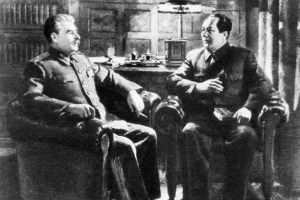
Published 04/22/2024 18:48
After a weekend marked by the referendum in Ecuador, the government led by President Daniel Noboa celebrates a significant victory in security measures, although it recognizes challenges in their implementation in the Legislature. Senior officials highlight the public’s “overwhelming support” for the proposals, reflecting an urgent demand for action against the growing wave of violence plaguing the country.
However, the government’s proposed measures to address the violence have triggered a range of criticism, with many observers denouncing what they see as a truculent and authoritarian approach inspired by the leadership style of El Salvador’s president, Nayib Bukele.
Following significant support for a range of security measures, concerns have grown about the direction the country is taking. The term “Bukelization” has been widely used to describe this trend, which refers to Bukele’s aggressive and authoritarian style in the war against gangs in El Salvador.
Among the measures approved in the referendum are joint patrols between police and military, extradition of wanted criminals and longer sentences for crimes such as terrorism and murder. While the Ecuadorian government has welcomed the overwhelming support for these proposals, warnings are growing about the dangers of such a draconian approach, especially in relation to human rights and the rule of law.
The quick count by the National Electoral Council showed that “Yes” received between 60% and 73% of valid votes, reflecting significant approval of the proposed measures. However, the opposition prevailed on issues such as the restoration of working hours and the recognition of international arbitration for resolving commercial disputes, indicating a split in public opinion over the government’s policies.
President Noboa stated that the approved measures provide Ecuador with “more tools to fight crime.” However, these measures can lead to abuses of power and human rights violations, especially at a time when the country is facing an unprecedented crisis of violence. In El Salvador, opposition sectors in politics also become targets of security policies.
The comparison with Bukele’s leadership style in El Salvador raises additional concerns, especially considering the controversial tactics adopted by the Salvadoran government in the war against gangs. The excessive use of force, the lack of adequate legal guarantees for those accused, and the erosion of individual freedoms are just some of the concerns raised by critics of the Ecuadorian government.
Furthermore, the recent spectacular escape of the leader of the Los Choneros gang from prison in Guayaquil, followed by a wave of violence in several cities, highlighted the seriousness of the security situation in Ecuador. While it is understandable that the government is seeking strong measures to address this crisis, it is essential to ensure that such measures respect democratic principles and the fundamental rights of all Ecuadorian citizens.
According to information from the national electoral council, around 65% of the ballots were counted, revealing a clear advantage for the government in nine of the eleven questions presented. The vice minister of government, Esteban Torres, highlighted the expectation of cooperation between the Executive and the Legislative to implement the approved measures.
However, despite the significant victory in the referendum, the Ecuadorian government will face challenges in transforming these proposals into reality. At least five changes to existing laws will be necessary, and parliamentarians will have 60 days to approve the necessary amendments.
In addition to measures related to security, the referendum also addressed other important issues, such as gun control in prisons, increasing penalties for specific crimes and simplifying legal procedures related to the seizure of goods of illicit origin.
Source: vermelho.org.br

